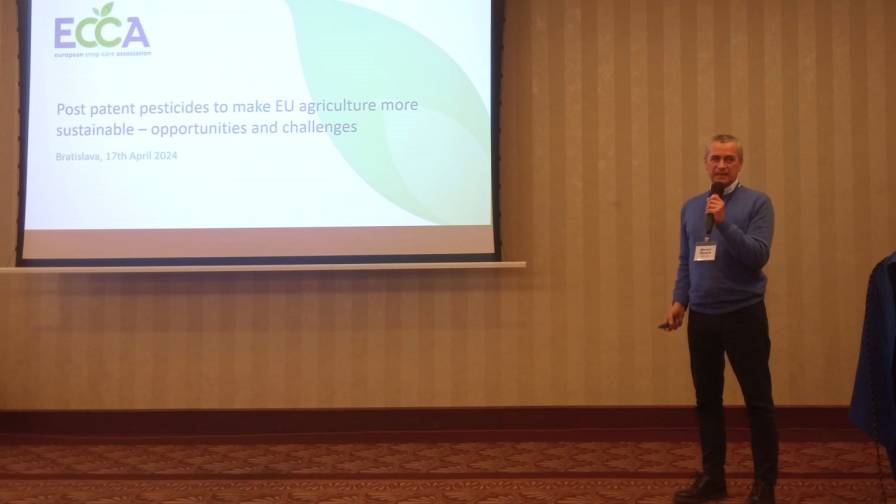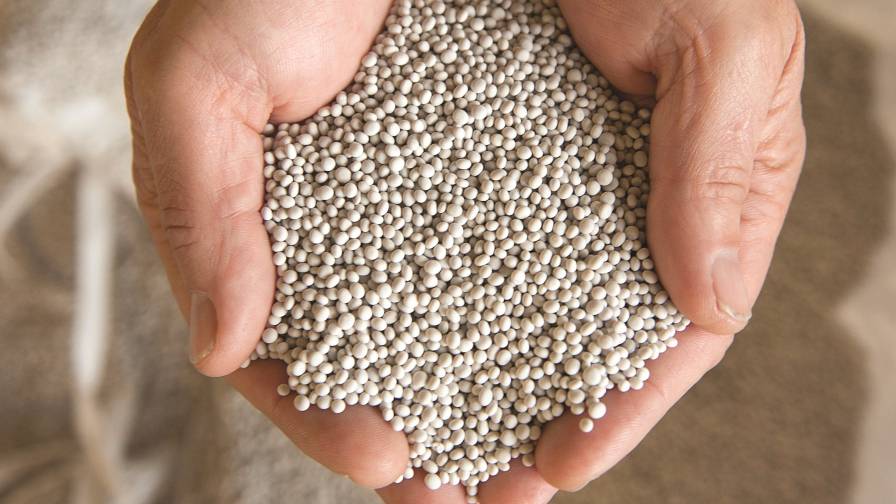Big Biodiesel Sector Opportunities for Agrochemical Players
AgriBusiness Global Senior Editor Jackie Pucci hosts AgriBusiness Global Report, a 10-minute show bringing you interviews with executives and experts working in the agrochemical, biological, and plant health industries. For this show, Pucci interviews ag industry expert Kenneth Scott Zuckerberg of CoBank on some of the challenges and opportunities for agrochemical players. He discusses everything from opportunities connected to the biodiesel boom to fixing some of the infrastructure problems and supply chain shortcomings exposed by the Covid-19 pandemic.
Note: If you are unable to view the video, then click here.
ABG: So, Ken, now that we’re entering this post-Covid era, what has stood out to you most over the past two years, as a veteran analyst and economist in the agricultural markets?
So I think there are numerous lessons to be learned from Covid. Here are a few that come to mind that are key. First, there is really no ability to predict what will happen and assured in the short and intermediate term when you have such a global event such as a pandemic. For example, immediately after the lockdown started, most people had assumed that the US and the world could go into a deep recession and or a global depression. That actually didn’t happen. Governments responded with stimulus and also as we saw people immediately responded to the work from home technology and were able to continue working in many cases without too much interruption. I guess the second lesson is that the world is a much riskier place than most people probably appreciated, and part of that risk comes from the standpoint of, we had been upgrading manufacturing, and just in time inventory deliveries for selling products, and when you had manufacturing shutdowns overseas, that complicated the matter for many businesses – agribusinesses and others – to deliver products and consumers when they wanted it. So, what seemed to be positive globalization and offshoring, in terms of manufacturing, turned out to be really a major risk that was lingering there all along and Covid just highlighted it.
ABG: What are some of the most overlooked pieces?
There were various weather-related shocks that took place in the past couple of years. Obviously, climate change is getting a lot of focus, and I wouldn’t say that these weather-related events are getting overlooked, but I think they all have second order effects, and probably what’s being overlooked is that governments and industries will tend to be very reactive as opposed to proactive.
For example, here in the United States, the Mississippi River carries rain from the Midwest to New Orleans to be exported to global export markets. At the same time, the Mississippi carries fertilizer and agrochemicals up to the Midwest to be delivered to farmers. This summer, we had a very bad drought. Water levels on the Mississippi actually went down. As the water levels went down, the width of the river also narrows, and what we have today, I think we are probably two or two and a half weeks in, we have a series of bottlenecks in both directions on the Mississippi. Therefore grains are not getting out and fertilizer and fuel and other products are not getting in. So this is one of those in some ways overlooked or at least, I don’t want to say ignored problems or second order effects of climate change, but the reality is, the Mississippi River is always low this time of year. And the reality is that the climate has only gotten warmer and the increasing drought has only increased in recent years. So, when you think about the fact that this seems to happen every year, one could argue that, look, our infrastructure is outdated and maybe we should change things a little bit. So I guess I look at this and say to myself, one thing that’s overlooked is the obvious, right? If you have problems, it’s not good enough to just get through the crisis and wait for the next time around. Shouldn’t we try to be more resilient, and that’s the kind of the theme that we’re talking about with CoBank’s grain clients, especially this year.
ABG: You had done some work on the biodiesel sector – did you want to talk about that just a little bit?
So the biodiesel sector is interesting with respect to what governments are doing well, vis-à-vis climate change. There have been a number of efforts underway in the past few years to help promote renewable energy sources, and the agriculture industry figures prominently in that. In the past two years, we’ve seen lots of different projects on the renewable diesel side. And this essentially is a product which is a second generation biodiesel fuel, which has better characteristics, more useful characteristics for the industry versus the traditional biodiesel. A lot of plants, soybean crush facilities are up and running, we see government legislation being supportive of this. The recent Inflation Reduction Act of 2022 – it really should have been called the Renewable Diesel Promotion Act – because it really provides a lot of concrete incentives for the US to orient itself to be more climate smart, vis-à-vis fuel, and agriculture has a role to play because soybeans figure prominently in the production of US-produced renewable diesel.
ABG: It sounds like another chance for companies to be proactive rather than reactive in that sense in biodiesel. How much opportunity is there for soybean players outside of the US in this kind of space?
Jackie, you’re right. In the recent report we did, and all our research is free on cobank.com so please feel free to reference that. Yeah, we need much more. We need a considerable amount more of soybean and general oilseed feedstock. So there’s definitely opportunities there for international players to help. Another part of this, too, is that when you think about the agrochemical players in particular, soybean weed pressures are a major problem for the soybean crops. So when you think about bringing attractive products to the US farmer to increase yield, limiting weeds with agrochemical technology, demand is only going to increase in my opinion.
ABG: Just getting back to the supply chain too, how best can international players take part to help to avoid supply chain and manufacturing problems in the future?
So repeating my answer previously, what I would say the first step is always to just recognize what’s going on and to admit it, right. Whenever something bad happens, there’s usually two ways to think about it: either ignore it or actually embrace it and act. So I think first it’s a mindset. We have to realize that some of these supply chain problems may be permanent unless we change them.
Now, related to strategies and what companies can do, the international agrochemical companies, I think there’s a terrific opportunity to work with farm coalitions, with the US grain cooperatives and farm supply cooperatives, and ag retailers. Thinking about building resilient, updating infrastructure, being more proactive about the time of year that shipments go, thinking about storage and inventory, and also not for nothing, but utilizing commercial insurance and reinsurance programs to help mitigate the loss of business interruption. A lot of agriculture is focused on crop insurance, but there’s so much risk that occurs after the crop has been taken out of the ground. So I think there is tremendous opportunity for commercial insurance solutions to be brought to bear here.






